19 Jun 7 Types of Insurance Your Nonprofit Organization Needs
Even if your organization isn’t out to generate profit, it still needs to protect its assets, employees, and volunteers to fulfill its mission. Your nonprofit is a unique entity, and you need tailored insurance for your particular needs. However, there are several common types of insurance your nonprofit needs to consider.
Directors and Officers Liability Insurance (D&O)
A principal concern of nonprofit board members and officers is whether they’re protected if they’re named in a lawsuit alleging fraud or financial mismanagement. Creditors may pursue a board member if their investment decisions cause their nonprofit to fail to meet its financial obligations.
Fortunately, directors and officers insurance can cover the resulting legal costs of a lawsuit and any damages if the court rules in the plaintiff’s favor. Nonprofits need to discuss coverage with their agent, as policies do not automatically cover all wrongful acts.
Policies may exclude coverage for criminal or fraudulent behavior, claims between directors, or other situations. Since D&O insurance only applies to officers and the board of directors, your nonprofit still needs general liability insurance to address other risks.
General Liability – Premises Liability Insurance
General liability insurance covers bodily injury or property damage claims if a visitor injures themselves on your organization’s property. It also protects your nonprofit from slander, libel, or copyright infringement. It is usually a requirement for funding, hosting events, property leases or rentals, and for many contracts and partnerships.
General liability insurance may cover volunteers, provided your policy does not exclude it. However, insurance companies also offer volunteer accident insurance for complete coverage, including minor injuries.
Employee injuries are not covered under general liability insurance. State and federal insurance requirements apply, and you may need to pay workers’ compensation, unemployment insurance, and sometimes disability insurance.
General Liability – Product Liability Insurance
If you sell products to the public, you may want to protect your organization with product liability insurance. If someone breaks a tooth on a cookie you sell at a bake sale or hurts themselves using one of your products, this insurance covers legal expenses and compensation for damages.
Professional Liability Insurance
Professional liability coverage, also known as “errors and omissions” or “malpractice” insurance, protects your organization and the professionals you employ from claims due to errors and omissions in performing their professional services. It can protect directors, officers, employees, volunteers, and the organization itself.
If your organization offers counseling, coaching, mentoring, educational services, therapies, or case management, professional liability coverage is highly recommended, whether you use licensed professionals or not. General liability coverage will not protect you if someone sues for unprofessional conduct.
Sexual Misconduct Liability
Sexual Misconduct liability pays for defense and settlement, if the plaintiff wins their case in court. Claims may include client lawsuits against an employee, volunteer, or contractor due to abuse or from negligent supervision resulting in abuse or molestation.
General and professional liability policies exclude these risks, so organizations that serve vulnerable populations such as seniors, youth, or the disabled should seriously consider this coverage.
Automobile Insurance
Whether your nonprofit owns vehicles, relies on those belonging to people in your organization, or rents as needed, you need the correct policy and coverage. Automobile liability, personal injury protection (PIP) and uninsured/underinsured motorist (UM/UIM) coverage are often state requirements.
Your agent can recommend a commercial, non-owned, or hired auto liability policy to suit your needs and reduce your risk.
Cyber Liability Insurance
Nonprofits are just as vulnerable to data breaches as any other business, and they often retain very sensitive data. Confidential client, donor, and employee data are all at risk, especially if your organization uses mobile technologies such as laptops and cellphones.
Cyber liability insurance covers expenses associated with data breaches such as costs to defend claims by state regulators, fines and penalties, credit monitoring, and identity theft losses.
These are just some of the insurance possibilities for your nonprofit. Discuss your options with Gilbert’s Risk Solutions. Our long track record and commitment to excellence minimizes risk and cost. We’re easy to talk to and experienced in nonprofit insurance.
Running a nonprofit is all about making an impact, but unexpected disruptions can happen at any time. If you want to ensure your organization is protected from unforeseen risks, contact one of our talented Risk Advisors today!


No Comments